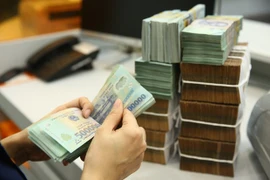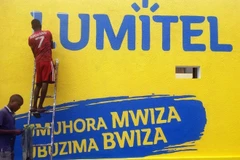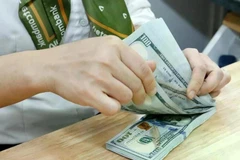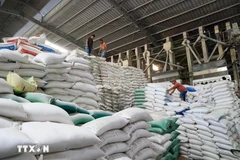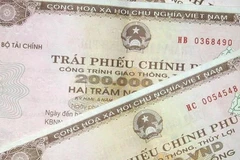The move is aimed to increase charter capital, improve financial strength, meetthe State Bank of Vietnam (SBV)’s capital safety regulations and expandoperating scale.
Accordingly, BIDV plans to issue more than 642 million shares to pay dividends,which will increase the bank’s charter capital from nearly 50.59 trillion VND tomore than 57 trillion VND.
BIDV has recently finalised the dividend entitlement date onNovember 29 this year, at a rate of 12.69%. Thus, the bank’s shareholders, whohold each 100 BID shares, will receive 12.69 new shares.
Besides BIDV, VietinBank plans to issue more than 564 millionshares to pay dividends to increase its charter capital from nearly 48.056trillion VND to 53.7 trillion VND.
VietinBank has also closed the ex-rights trading date on November30 this year. The dividend ratio is 11.7415%, meaning shareholders owning 1,000shares at the closing date will receive 117 new shares.
Earlier, Vietcombank also officially increased its charter capitalto 55.89 trillion VND, after paying stock dividends at the rate of 18.1%.
Agribank in the middle of this year was also approved by the National Assemblyto supplement charter capital for the 2021-30 period with a maximum of 17.1trillion VND, of which 6.75 trillion VND will be added in 2023 and a maximum ofnearly 10.35 trillion VND will be in 2024 from the State budget.
Not only large State-owned banks, many other private banks havealso locked in the right to receive dividends and bonus shares, such as OCBwith a dividend ratio of 50% in shares; HDBank with a rate of 15% in shares;and SHB with a ratio of 18% in shares.
Notably, in this November, VPBank for the first time in the past decadefinalised the list of shareholders to pay cash dividends at a rate of 10%. Withmore than 7.9 billion shares in circulation, VPBank spent more than 7.9trillion VND to pay dividends. VPBank was one of the few banks that distributeda portion of dividends in cash this year.
SBV’s statistics showed 28 banks have expected to increase theircharter capital by more than 163 trillion VND in 2023, higher than last year’snumber of 154 trillion VND. It is estimated that more than four billion bankshares are issued this year to pay dividends to investors.
According to international credit rating organisation Fitch Ratings, Vietnam’srapid credit growth in recent years has posed a big challenge for banks inensuring capital safety. Fitch Ratings believes that the Vietnamese bankingsystem needs additional capital of up to 10.7 billion USD, equal to 2.9% ofGDP, to ensure risk provisions and maintain the capital adequacy ratio (CAR) at10%./.

